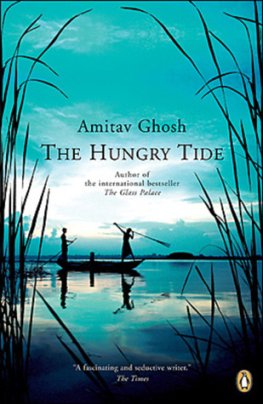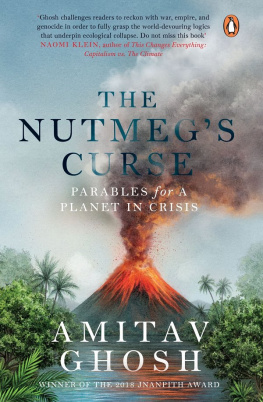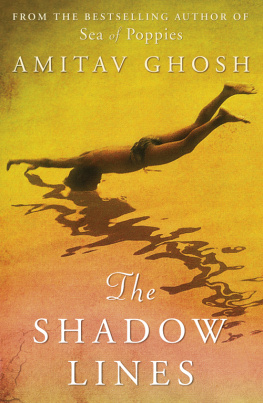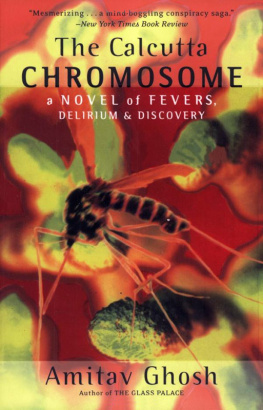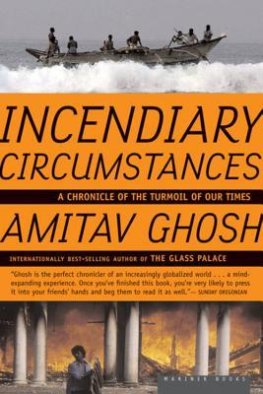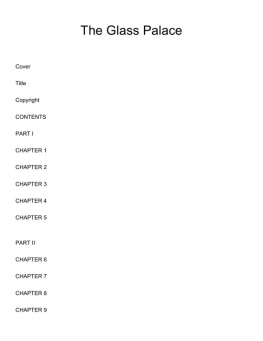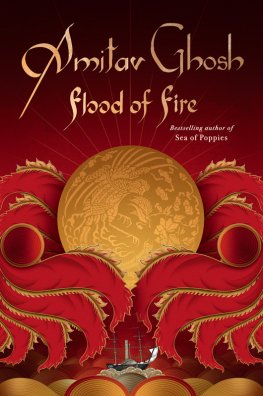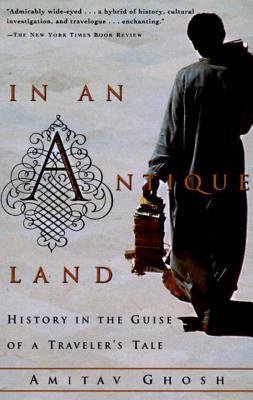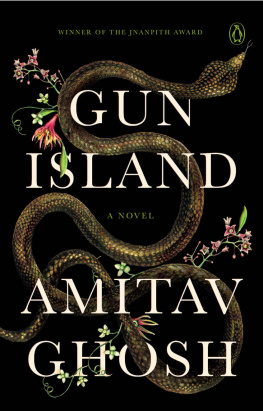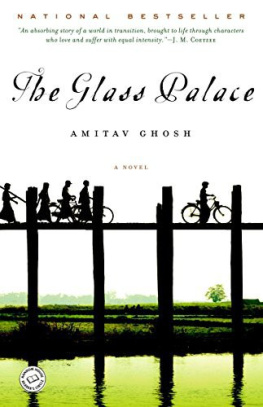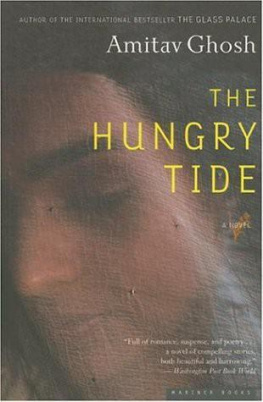Amitav Ghosh
The Hungry Tide
KANAI SPOTTED HER the moment he stepped onto the crowded platform: he was deceived neither by her close-cropped black hair nor by her clothes, which were those of a teenage boy loose cotton pants and an oversized white shirt. Winding unerringly through the snack vendors and tea sellers who were hawking their wares on the stations platform, his eyes settled on her slim, shapely figure. Her face was long and narrow, with an elegance of line markedly at odds with the severity of her haircut. There was no bindi on her forehead and her arms were free of bangles and bracelets, but on one of her ears was a silver stud, glinting brightly against the sun-deepened darkness of her skin.
Kanai liked to think that he had the true connoisseurs ability to both praise and appraise women, and he was intrigued by the way she held herself, by the unaccustomed delineation of her stance. It occurred to him suddenly that perhaps, despite her silver ear stud and the tint of her skin, she was not Indian, except by descent. And the moment the thought occurred to him, he was convinced of it: she was a foreigner; it was stamped in her posture, in the way she stood, balancing on her heels like a flyweight boxer, with her feet planted apart. Among a crowd of college girls on Kolkatas Park Street she might not have looked entirely out of place, but here, against the sooty backdrop of the commuter station at Dhakuria, the neatly composed androgyny of her appearance seemed out of place, almost exotic.
Why would a foreigner, a young woman, be standing in a south Kolkata commuter station, waiting for the train to Canning? It was true, of course, that this line was the only rail connection to the Sundarbans. But so far as he knew it was never used by tourists the few who traveled in that direction usually went by boat, hiring steamers or launches on Kolkatas riverfront. The train was mainly used by people who did daily-passengeri, coming in from outlying villages to work in the city.
He saw her turning to ask something of a bystander and was seized by an urge to listen in. Language was both his livelihood and his addiction, and he was often preyed upon by a near-irresistible compulsion to eavesdrop on conversations in public places. Pushing his way through the crowd, he arrived within earshot just in time to hear her finish a sentence that ended with the words train to Canning? One of the onlookers began to explain, gesticulating with an upraised arm. But the explanation was in Bengali and it was lost on her. She stopped the man with a raised hand and said, in apology, that she knew no Bengali: Ami Bangla jani na. He could tell from the awkwardness of her pronunciation that this was literally true: like strangers everywhere, she had learned just enough of the language to be able to provide due warning of her incomprehension.
Kanai was the one other outsider on the platform and he quickly attracted his own share of attention. He was of medium height and at the age of forty-two his hair, which was still thick, had begun to show a few streaks of gray at the temples. In the tilt of his head, as in the width of his stance, there was a quiet certainty, an indication of a well-grounded belief in his ability to prevail in most circumstances. Although his face was otherwise unlined, his eyes had fine wrinkles fanning out from their edges but these grooves, by heightening the mobility of his face, emphasized more his youth than his age. Although he was once slight of build, his waist had thickened over the years but he still carried himself lightly, and with an alertness bred of the travelers instinct for inhabiting the moment.
It so happened that Kanai was carrying a wheeled airline bag with a telescoping handle. To the vendors and traveling salesmen who plied their wares on the Canning line, this piece of luggage was just one of the many details of Kanais appearance along with his sunglasses, corduroy trousers and suede shoes that suggested middle-aged prosperity and metropolitan affluence. As a result he was besieged by hawkers, urchins and bands of youths who were raising funds for a varied assortment of causes: it was only when the green and yellow electric train finally pulled in that he was able to shake off this importuning entourage.
While climbing in, he noticed that the foreign girl was not without some experience in travel: she hefted her two huge backpacks herself, brushing aside the half-dozen porters who were hovering around her. There was a strength in her limbs that belied her diminutive size and wispy build; she swung the backpacks into the compartment with practiced ease and pushed her way through a crowd of milling passengers. Briefly he wondered whether he ought to tell her that there was a special compartment for women. But she was swept inside and he lost sight of her.
Then the whistle blew and Kanai breasted the crowd himself. On stepping in he glimpsed a seat and quickly lowered himself into it. He had been planning to do some reading on this trip and in trying to get his papers out of his suitcase it struck him that the seat he had found was not altogether satisfactory. There was not enough light to read by and to his right there was a woman with a wailing baby: he knew it would be hard to concentrate if he had to fend off a pair of tiny flying fists. It occurred to him, on reflection, that the seat on his left was preferable to his own, being right beside the window the only problem was that it was occupied by a man immersed in a Bengali newspaper. Kanai took a moment to size up the newspaper reader and saw that he was an elderly and somewhat subdued-looking person, someone who might well be open to a bit of persuasion.
Ar moshai, can I just say a word? Kanai smiled as he bore down on his neighbor with the full force of his persuasiveness. If it isnt all that important to you, would you mind changing places with me? I have a lot of work to do and the light is better by the window.
The newspaper reader goggled in astonishment and for a moment it seemed he might even protest or resist. But on taking in Kanais clothes and all the other details of his appearance, he underwent a change of mind: this was clearly someone with a long reach, someone who might be on familiar terms with policemen, politicians and others of importance. Why court trouble? He gave in gracefully and made way for Kanai to sit beside the window.
Kanai was pleased to have achieved his end without a fuss. Nodding his thanks to the newspaper reader, he resolved to buy him a cup of tea when a chaala next appeared at the window. Then he reached into the outer flap of his suitcase and pulled out a few sheets of paper covered in closely written Bengali script. He smoothed the pages over his knees and began to read.
In our legends it is said that the goddess Gangas descent from the heavens would have split the earth had Lord Shiva not tamed her torrent by tying it into his ash-smeared locks. To hear this story is to see the river in a certain way: as a heavenly braid, for instance, an immense rope of water, unfurling through a wide and thirsty plain. That there is a further twist to the tale becomes apparent only in the final stages of the rivers journey and this part of the story always comes as a surprise, because it is never told and thus never imagined. It is this: there is a point at which the braid comes undone; where Lord Shivas matted hair is washed apart into a vast, knotted tangle. Once past that point the river throws off its bindings and separates into hundreds, maybe thousands, of tangled strands.
Until you behold it for yourself, it is almost impossible to believe that here, interposed between the sea and the plains of Bengal, lies an immense archipelago of islands. But that is what it is: an archipelago, stretching for almost two hundred miles, from the Hooghly River in West Bengal to the shores of the Meghna in Bangladesh.

